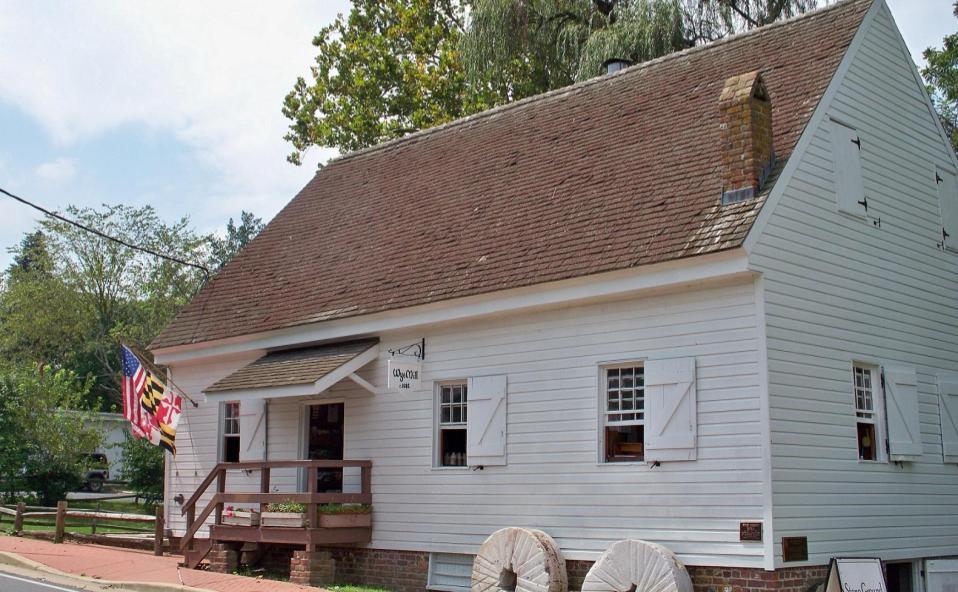Old Wye Mill has announced a comprehensive training program for Docents, Apprentice Millers, and Mill Shop Assistants. These positions give volunteers opportunities to learn about the history of mills and milling on Maryland’s Eastern Shore and interact with the public in one of Maryland’s most remarkable places: the historic grist mill is the oldest continuously operated water-powered mill in America, and Maryland’s oldest continuously operating business.
 The training program consists of a virtual speaker series plus hands-on workshops in April and May 2021. Five vibrant speakers will present perspectives on different historical eras and themes related to the Mill. Old Wye Mill’s experienced Millers and Docents will demonstrate how to turn wheat, corn and buckwheat into flour, meal, and other products, and how to present this history to the public. Workshops on how to engage the public effectively will conclude the formal part of the training; volunteers will then get on-the-job training under an experienced mentor for at least the first month.
The training program consists of a virtual speaker series plus hands-on workshops in April and May 2021. Five vibrant speakers will present perspectives on different historical eras and themes related to the Mill. Old Wye Mill’s experienced Millers and Docents will demonstrate how to turn wheat, corn and buckwheat into flour, meal, and other products, and how to present this history to the public. Workshops on how to engage the public effectively will conclude the formal part of the training; volunteers will then get on-the-job training under an experienced mentor for at least the first month.
“Volunteers are the lifeblood of the Mill,” said John G. Nizer, president of the OWM Board, “While they enjoy spending time at the Mill, they provide a crucial public service, sharing the fascinating stories of American history with visitors and inspiring our youth.”
Volunteers commit to at least one 4-hour shift per month, and they are expected to become members of the organization. They receive a discount on Mill Shop sales. The virtual speaker sessions will take place on Thursday evenings, April 8 to May 6, and the Visitor Engagement Workshops will take place on Saturday mornings in May.
Please visit https://www.oldwyemill.org/volunteer for more information, or contact Old Wye Mill Administrator Rhonda Corder by telephone at 410-827-3850 or by email [[email protected]].
Old Wye Mill is open May 1 through October 31, Mon – Sat 10 a.m. to 3 p.m., Sunday 1 p.m. to 3 p.m., and by appointment at other times.
These programs are made possible by a grant from the Maryland Heritage Areas Authority, with Maryland State funds, through the Stories of the Chesapeake Heritage Area. The contents do not necessarily reflect the views or policies of the Maryland Heritage Areas Authority.



Write a Letter to the Editor on this Article
We encourage readers to offer their point of view on this article by submitting the following form. Editing is sometimes necessary and is done at the discretion of the editorial staff.